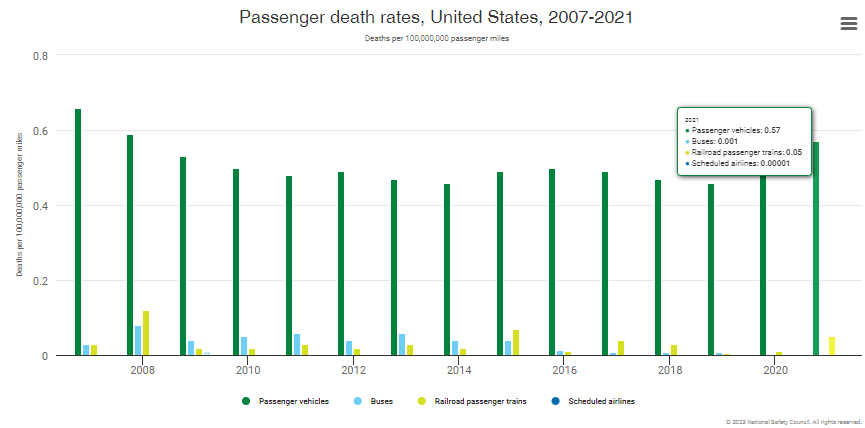When there is a train, plane, or bus crash, it's newsworthy: it doesn't happen very often, lots of lives at stake, lots of people are interested in it. Multiple news outlets will send out reporters, and we will hear a lot of details. On the other hand, a car crash does not get this treatment unless there is something unusual about it like a driverless car or an already newsworthy person involved.
The effects are not great: while driving is relatively dangerous, both to the occupants and people outside, our sense of danger and impact is poorly calibrated by the news we read. My guess is that most people's intuitive sense of the danger of cars versus trains, planes, and buses has been distorted by this coverage, where most people, say, do not expect buses to be >16x safer than cars. This also affects our regulatory system, where we push to make high-capacity transportation modes safer (usually) even when this makes them less competitive with cars, shifting more people to driving, and increasing risk overall.
News outlets deciding that car crashes are sufficiently routine that most are not worth deep coverage is probably a commercially reasonable decision, where they expect stories that wouldn't get enough readers or viewers to justify the time investment. But I wonder whether groups trying to shift people away from cars could make up the difference. They could fund a newspaper to deeply investigate crashes, looking into the circumstances that led to the incident and illustrating the human impact of the tragedy. Just because something happens often doesn't mean each time matters less.
(I'm somewhat nervous about "pay for more coverage of events that point in the direction you advocate". I don't know how much this is currently accepted, or what approaches news outlets have in place to keep this kind of arrangementf from producing distorted coverage?)

I suspect there is a large variation between countries in how safely taxi drivers drive relative to others.
In London my impression is that the taxis are driven more safely than non-taxis. In Singapore it appears obvious to casual observation that taxis are much less safely driven than most of the cars.